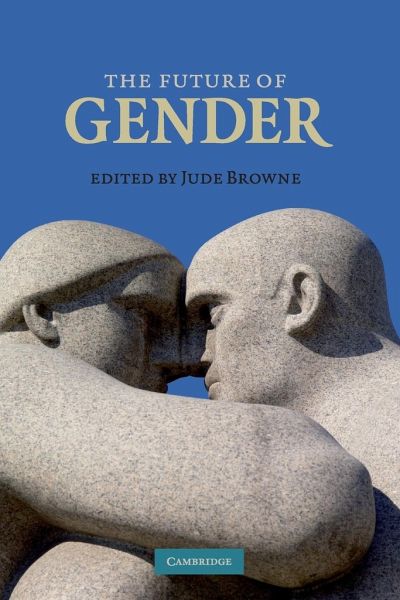
The Future of Gender
Versandkostenfrei!
Versandfertig in 1-2 Wochen
41,99 €
inkl. MwSt.
Weitere Ausgaben:

PAYBACK Punkte
21 °P sammeln!
'Gender' is used to classify humans and to explain their behaviour in predominantly social rather than biological terms. But how useful is the concept of gender in social analysis? To what degree does gender relate to sex? How does gender feature in shifts in familial structures and demography? How should gender be conceived in terms of contemporary inequality and injustice, and what is gender's function in the design and pursuit of political objectives? In this volume a collection of international experts from the fields of political philosophy, political theory, sociology, economics, law, ps...
'Gender' is used to classify humans and to explain their behaviour in predominantly social rather than biological terms. But how useful is the concept of gender in social analysis? To what degree does gender relate to sex? How does gender feature in shifts in familial structures and demography? How should gender be conceived in terms of contemporary inequality and injustice, and what is gender's function in the design and pursuit of political objectives? In this volume a collection of international experts from the fields of political philosophy, political theory, sociology, economics, law, psychoanalysis and evolutionary psychology scrutinize the conceptual effectiveness of gender both as a mode of analysis and as a basis for envisioning the transformation of society. Each contributor considers how gender might be conceived in contemporary terms, offering a variety of (often conflicting) interpretations of the concept's usefulness for the future.




